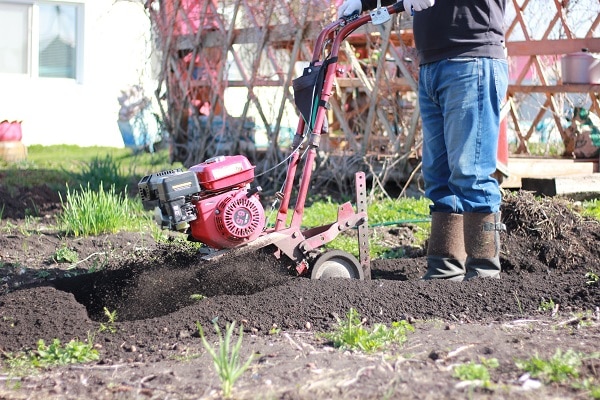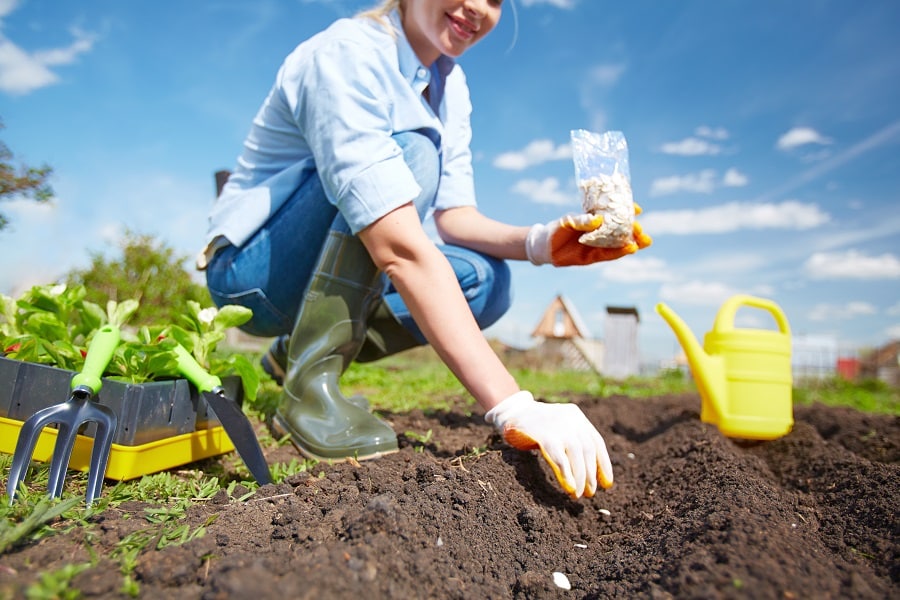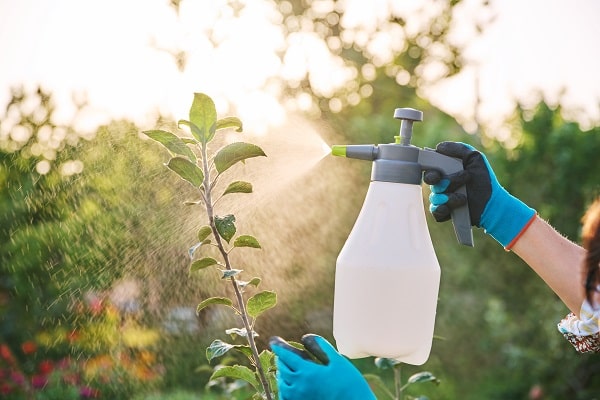Becoming an organic gardener is an incredibly rewarding and beneficial activity that can provide a bounty of fruits, vegetables, herbs, and flowers to enjoy year-round. Have you ever dreamed of growing your own produce right at home or caring for a garden full of colorful blooms? The good news is that it doesn’t have to be hard work! With some planning and know-how, you can become an organic gardener in no time. This post will look at eight easy steps to ensure your gardening journey starts on the right foot!
Contents
- 1 Organic Gardening Vs. Regular Gardening
- 2 Steps To Become An Organic Gardener
- 3 Choose The Right Location
- 4 Prepare Your Soil
- 5 Choose The Right Plants
- 6 Plant Your Garden
- 7 Use Organic Fertilizers
- 8 Control Pests And Diseases
- 9 Weed Your Garden
- 10 Harvest Your Crops
- 11 Follow These Steps To Become An Organic Gardener!
Organic Gardening Vs. Regular Gardening
Growing food yourself has seen an uptick in recent years as people become more conscious of where their food is coming from. In deciding the best way to do this, you should consider organic gardening versus regular gardening. Organic gardening uses natural methods of pest and weed control without synthetic fertilizers or pesticides and avoids artificial additives in the soil for growth.
With regular gardening, however, these chemicals can aid growth, but they have potential risks. Of course, a significant difference exists when looking at the cost of supplies – since organic supplies can often be more expensive than standard products for gardeners on a budget. Ultimately, it comes down to convenience and personal preference – but it is important to weigh both pros and cons before deciding.
Steps To Become An Organic Gardener
After taking the time to consider which gardening style is right for you, the next step would be to get started on your journey toward becoming an organic gardener. The following eight steps will help ensure that you become a successful and knowledgeable organic gardener in no time:
Choose The Right Location
Choosing the right location for an organic garden is a critical first decision. Understanding the environment in which one’s organically grown produce will thrive necessitates contemplating various factors. The decisive criteria generally include soil, sun exposure, and water availability. Soil needs to have sufficient amounts of mineral and organic material and drainage so proper nutrition and aeration are retained.
If a plot of land has too much shade or not enough sun, it will hinder photosynthesis, ultimately blocking any abundant flourishing. Lastly, having access to plenty of water to keep plants healthy and hydrated can be an issue depending on the region; looking into local sources such as rainwater cisterns can prove helpful when planning the perfect organic garden location.
Prepare Your Soil
Preparing your soil for an organic garden is the next step in planting and tending to a successful garden. The process of soil preparation includes testing the alkalinity, pH, and nutrient levels and adjusting them if necessary. Adding organic matter to the soil is essential for soil health and fertility; you can accomplish this with compost, manure, or green mulch.
Additionally, it is beneficial to aerate your soil before planting by digging trenches and turning over the topsoil once per year. Taking the time to prepare your soil correctly will result in a lush garden packed with vegetables, herbs, and fruits!
Choose The Right Plants
When picking plants for your garden, it’s essential to ensure they will thrive in the area and the amount of sunlight you have. Furthermore, select pest-resistant or disease-proof plants, as this reduces the need for harmful pesticides.
You can also go further by companion planting – pairing two different plant species together to get better soil fertility, draw helpful insects and repel pests. It’s an excellent way to take care of your garden naturally!
Plant Your Garden
After completing the soil preparation and picking your plants, it’s time to begin planting. You must adhere to each plant species’ planting guidelines; some require more space between them, while you must plant others at specific depths.
Right after you place the plants in their designated spots, water them thoroughly so they can start developing roots efficiently. Regularly watering will help keep your garden healthy during dry spells – especially throughout the growing season!
Use Organic Fertilizers
Managing an organic garden means using natural resources, such as organic fertilizer, to promote healthy soil and nourish the growing plants. Organic fertilizers contain naturally occurring elements found in nature that help provide nutrients to plants sustainably. They can consist of composted materials like manure, decomposing vegetation, insects, or cooked food scraps.
Organic fertilizer helps create an environment where beneficial organisms like microbes can thrive in the soil and help break down residues from crop production into plant-available forms of nutrition. Not only does this reduce the need for commercial and manufactured fertilizers, but it also allows gardeners to maintain a more sustainable approach to their gardening activities during every season of the year.
Control Pests And Diseases
Keeping pests and diseases at bay within your organic garden is essential for a successful crop, yet it can be difficult. A practical approach to this problem is utilizing natural predators like ladybugs or lacewings to eliminate aphids and praying mantises when battling caterpillars. In addition, employing organic pesticides such as neem oil, diatomaceous earth, or insecticidal soap derived from nature is more environmentally friendly than synthetic chemicals.
In addition to natural predators and organic pesticides, you can use companion planting to control pests. Certain plant species, such as marigolds and nasturtiums, are known to repel pests. Planting them in and around your garden can help keep pests at bay.
Weed Your Garden
Organic gardening demands regular weeding to prevent the competition of plants for nutrients and water and the potential development of pests or illnesses. Utilizing a hoe or hand cultivator or simply pulling them out manually are all adequate methods for eliminating weeds from your garden.
Don’t wait too long between sessions; even a short span of neglect can lead to an unmanageable weed problem! When faced with insurmountable issues, organic weed control solutions like mulching and covering the soil with fabrics provide helpful assistance.
Harvest Your Crops
The final step in becoming an organic gardener is, of course, harvesting your crops. The best way to do this is by determining when the crop is ripe – checking for signs such as color and texture. This will vary from plant to plant and will depend on the variety you planted.
Once your product is ready for harvest, use the proper tools – such as snips or scissors instead of pulling them by hand – to avoid damaging the roots or stems of your plants. Furthermore, think about storing your vegetables properly after harvesting them to maintain their freshness and flavor.
Follow These Steps To Become An Organic Gardener!
Becoming an organic gardener is more than just planting and harvesting plants – it’s about understanding the delicate balance between nature and man, utilizing natural, sustainable resources, and fostering an environment where all living things can thrive. With these tips in mind, you will become an expert organic gardener! And if you need a little extra help, that’s okay! Plenty of resources are available to help you learn more about organic gardening.








